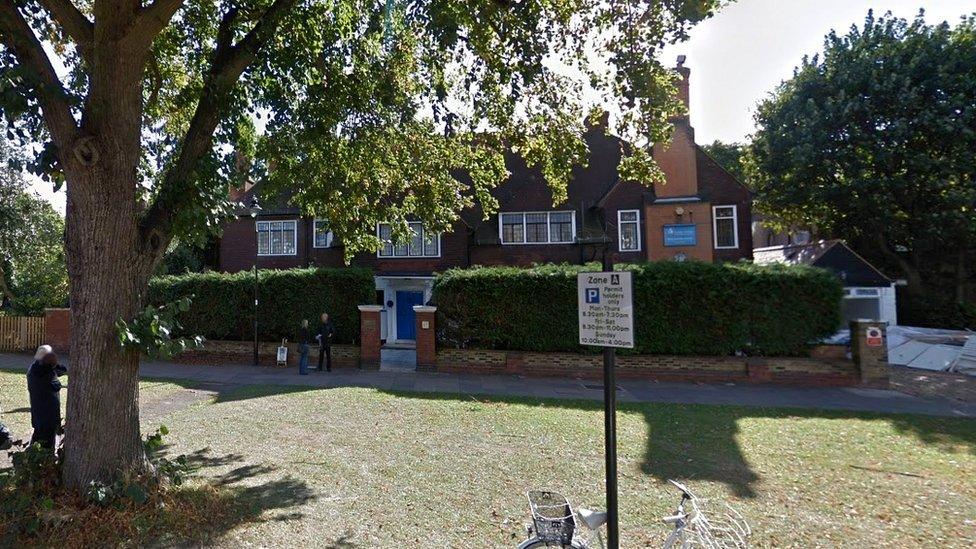'They made me feel like a criminal for having an abortion'
- Published
Lisa Jones says the protesters' presence is "cruel" and "unfair"
Anti-abortion campaigners have been accused of harassing women outside abortion clinics across the UK. With one council now deciding whether to ban them, some women say they are still haunted by protesters' behaviour.
"They said I was a murderer... that I was killing something with a heartbeat," Lisa Jones tells the BBC's Victoria Derbyshire programme.
She says she was harassed a number of years ago by anti-abortion protesters surrounding the entrance to an abortion clinic in Ealing, west London, where she was being seen.
"The words still live with me today, still haunt me today."
The campaigners have been protesting there for 20 years. Armed with placards and prayer beads, their aim is to convince women not to have an abortion.
Lisa had been advised by doctors to terminate her pregnancy after she was diagnosed with a brain tumour, and so never saw it as a choice.
"I was made to have an abortion," she says.
"I'd tried for a few years to fall pregnant and when I did fall pregnant it was the best thing ever, and to be told, 'You can't have that', it's absolutely heart-wrenching."
She says the protesters' comments almost made her risk her life, and not go through with the abortion.
"I was happy to come out of clinic, go home and risk my life because I didn't want to be branded a murderer," she explains. "But I couldn't."
Seeing them still standing outside the clinic "angers and frustrates me", she says.
"I think it's cruel, unfair. I don't think it should be allowed."
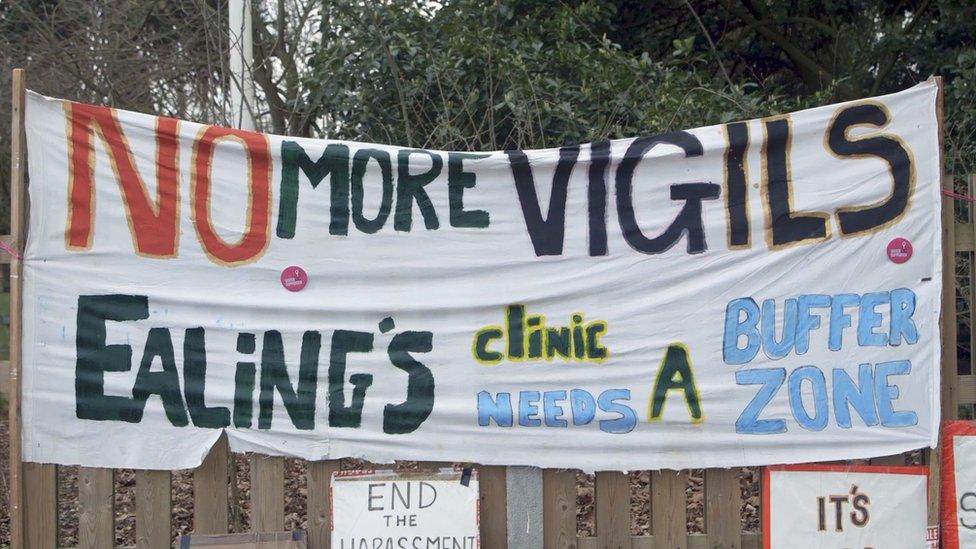
Ealing is to decide whether to create a "buffer zone" to stop protesting in front of a clinic
Following a consultation, Ealing Council in London will now vote on whether to ban campaigners from protesting outside the Marie Stopes clinic by introducing a "buffer zone" - which pro-choice groups want to cover an area of 100 metres from the clinic.
Abortion charities hope it could pave the way for other councils to do the same.
The government has also held its own consultation into harassment and intimidation near abortion clinics. The Home Office says it is now reviewing the responses, before deciding whether to take action.
Anti-abortion groups say they are actually there to offer support to women who do not want an abortion, but who see no other way out.

Find out more
Watch Jean Mackenzie's film on anti-abortion campaigners on the Victoria Derbyshire website.

The vigils - in which they pray for the mothers and unborn children, and hand out leaflets - are sporadic. Some days there are dozens of people, other times just a couple.
In Birmingham, Rachel Mackenzie has been attending local vigils for three years.
She has had two abortions herself, but now regrets them.
"I stand outside the clinics because I don't want there to be another 'Rachel' who goes through those abortion facilities to one day regret it," she says.
"If somebody had been there to actually ground me and say, 'There are other options out there', maybe my children would be alive today."
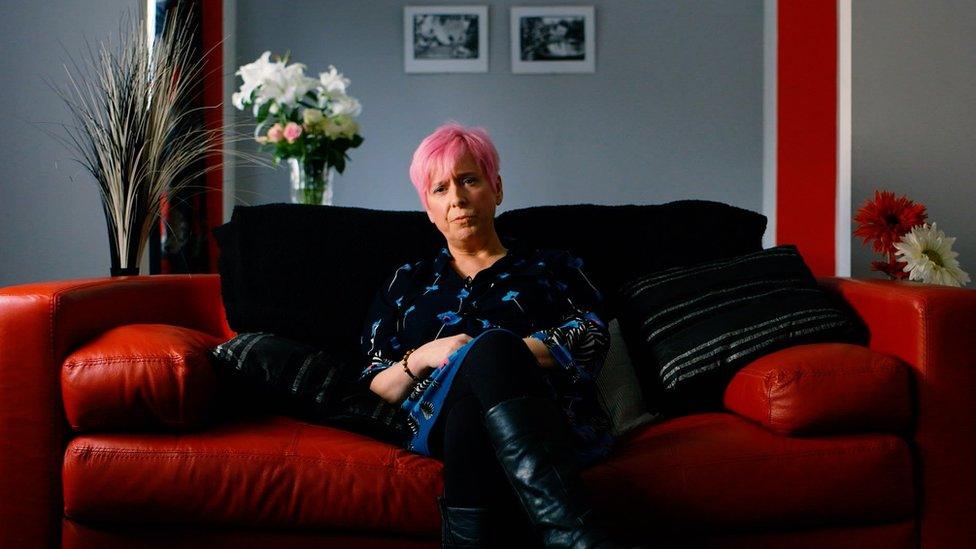
Rachel Mackenzie says she "very quietly prays" outside the clinic
Last year nearly 200,000 women had an abortion in England and Wales, and it is estimated that a third of women will have an abortion in their lifetime.
But the British Pregnancy Advisory Service - one of the country's largest abortion providers - says approximately one in five of the women they see decide to continue with their pregnancy, after being supported by staff at clinics.
Rachel says that when she stands outside her local clinic she will "very quietly pray".
"I'll say, 'Can I help you, here's a leaflet'... and I just show them love".
She says she has seen no evidence of women being abused or being called 'murderers', and that this "would not be allowed".
But for some women, the protesters' presence alone is upsetting.
Rebecca - whose surname we are not using - had an abortion 18 months ago at another clinic in the UK, and says she was left shaken by them being there.
"I remember just feeling so scared of [having the abortion].
"I didn't expect to be faced with a group of people standing outside, casting shame on what was a really difficult thing for me" she says.
"There is one man I will always remember. He looked at me as I got out of the car and just stared at me, and then just put his head down. I felt like a completely unacceptable human being.
"It was something I thought about all that day, the following days, weeks, months - and to this day, when I reflect back on that time, I think of that.
"It added a lot of pain to something that was already very painful."
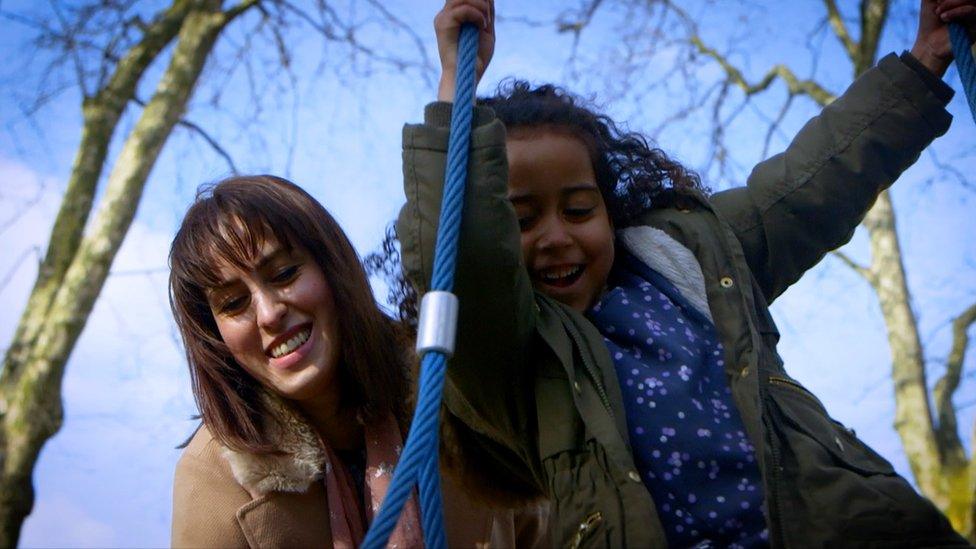
Alina Dulgheriu says the pro-life campaigners' support allowed her to keep her child
Rachel says she is sorry some women feel protesters are making their experience worse.
When asked if she has led anyone to change their mind about having an abortion, she says she does not believe she personally has.
But she does say the work of protesters on the whole has led "hundreds of women" to decide not to have an abortion.
'Financial support'
One group that organises vigils introduced us to a woman it says it supported through her pregnancy.
Alina Dulgheriu - who became pregnant while working as a live-in au pair - said she was thankful for their help, after she originally "gave in" to the father's wish that she should not keep the child, as she did not see how she could otherwise live financially.
She says the group gave her a room to stay, a cot and a buggy, and weekly money - which meant she did not have to have the abortion.
But Rebecca says it is clear the protesters have a damaging effect on many women.
"I would like these individuals who continue to protest outside clinics to know that when they stand [there] for one or two hours, it's a small part of their day, but for the women experiencing this, they will remember this for the rest of their lives."
Watch the BBC's Victoria Derbyshire programme on weekdays between 09:00 and 11:00 on BBC Two and the BBC News Channel.
- Published19 September 2018
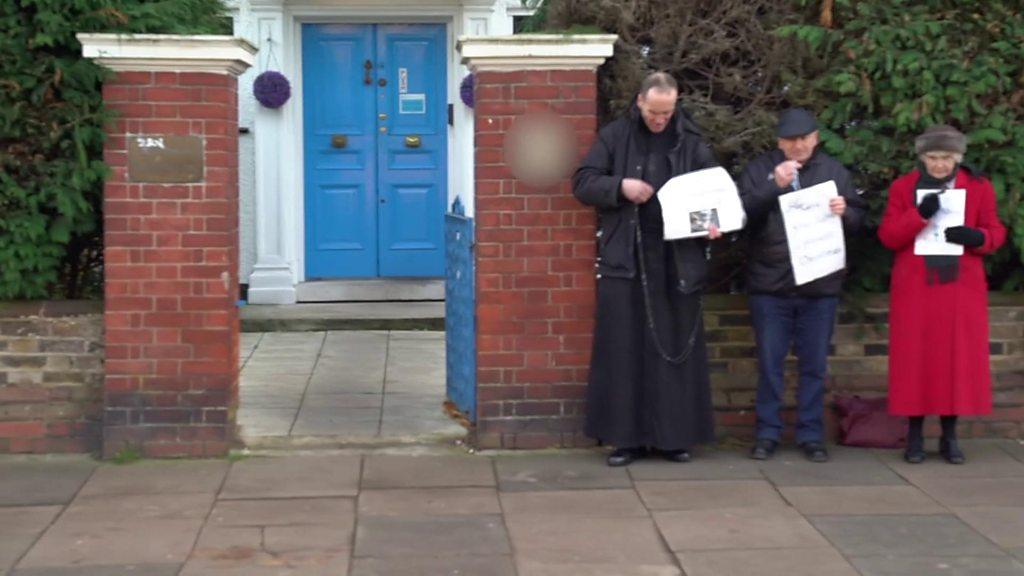
- Published16 January 2018
